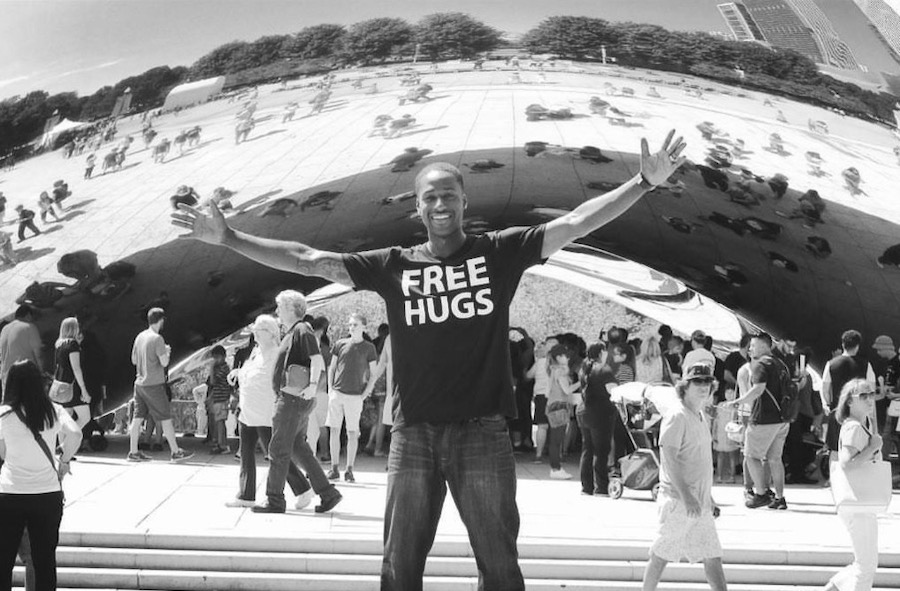Originally published March 2021.
Free hugs? I know it sounds incredible, but there was a time when they were available in public spaces! As we all plan our post-lockdown freedom, inevitably we question ‘What will our workplace look like?’ McKinsey has just released The Future of Work after Covid-19. It is definitely worth looking at, as a lot of thought and research has, as you would expect, gone into this and, importantly, it does draw conclusions.
Covid has taught us to use technology better, and in that sense we have found more freedom and flexibility. We have adapted and embraced existing technologies faster than we imagined. Consequently, we will probably accept new offerings more readily. In short, we have probably moved forward seven years in seven months – in what I have called a ‘great acceleration’.
However, I believe it is too early to talk of the death of the office as our workplace. Let’s face it: covid has made us think about a lot of things. Certainly, one is that we were using office space inefficiently. One desk per person is generous. Research shows many offices were running at 70% or lower occupation at any one time.
The Office for National Statistics has told us that its research before covid concluded 6% of us were working from home all the time and many more part-time. We found this in my previous business; we changed to a more agile working arrangement and, in my view, created a much better and more productive environment and happily reduced costs in the process. Coincidentally, it meant we were more prepared for home-working in the first lockdown.
Yes, we want to work flexibly and have the choice to work from home. However, will we give up our need for an office? I don’t think so
A lot of recent announcements are the result of the same conclusion and perhaps some see a new challenge due to progress by others in their competing arenas. A number of banks are reviewing their workplace strategy, but maybe covid has brought the recognition that new fintech start-ups are the way forward and they need to change the way they operate.
Similarly, I think a lot of other announcements are the same realisation that things have changed, and so businesses need to adapt too. It doesn’t mean to say the need for an office changes completely as well. Yes, we want to work flexibly and have the choice to work from home if it improves our productivity. Why would anybody want to argue against that? However, will we give up our need for an office? I don’t think so.
I did some modelling to look at the impact on stock requirements. I tried to think of the variables: density of desking, utilisation rates, meeting and breakout space requirements, existing shared desking, and adjust for levels of need due to increased working from home. The dynamics indicated tipping points where working-from-home levels and the move to increase personal space in the office will counteract each other – always assuming shared desking is something we all feel comfortable with. But all this analysis ignores the most important thing, and that is what makes us humans happy in both a place of work and a place of home.
Of course commuting is a pain for many, and now we wonder about safe commuting, but many of us enjoy separating home and workplace and some do not have the choice. We know working from home for many was tough because the facilities were not conducive to productivity – something that would need to change if it became a more permanent fixture of workplace options.
I have two sons graduating this year, who although they have started working, have yet to experience their workplace – the direct relationship with the teams they work with, the mentoring, the creation of a new social network and the moments where collisions lead to brainwaves. I know many others are in the same position. The office provides the one thing most thrive on, and that is social interaction with our peer group, new friends with new ideas.
The office provides the one thing most thrive on, and that is social interaction with our peer group, new friends with new ideas
Going to work was much more than a journey-arrive-work-journey-home experience, repeated five times a week. There was the smile and chat with the barista, the receptionist and security, the chance bumping into an old friend or colleague – the sense of being. All these interactions were part of our social experience and also created new information links.
These ‘weak ties’, as named by Mark Granovettor of Stanford, are part of our daily lives and form us as individuals. In his view, these weak ties form part of an outer circle contributing our general health and well-being – “Personal experience of individuals is closely bound up with larger-scale aspects of social structure well beyond the purview or control of particular individuals…” I think this is an area of our lives we will want to recover.
The office is also a place to learn, train, share and progress. Proximity to those that define our futures is a natural instinct. Also, many career changes are brought about by this social interaction and, indeed, by these weak ties. It is impossible to talk about demand for offices and the maths involved without being acutely aware of the behavioural issues too – in other words, us!
Yes, I believe we will change our work patterns where we can; yes, I believe we will offer greater flexibility of workplaces; and yes, I suspect we will pay for the cost of properly equipping these new home workplaces by economising on the physical space we need. So the workplace becomes more multifaceted, but the office does not cease to exist. Maybe one day the free hugs will come back too!








